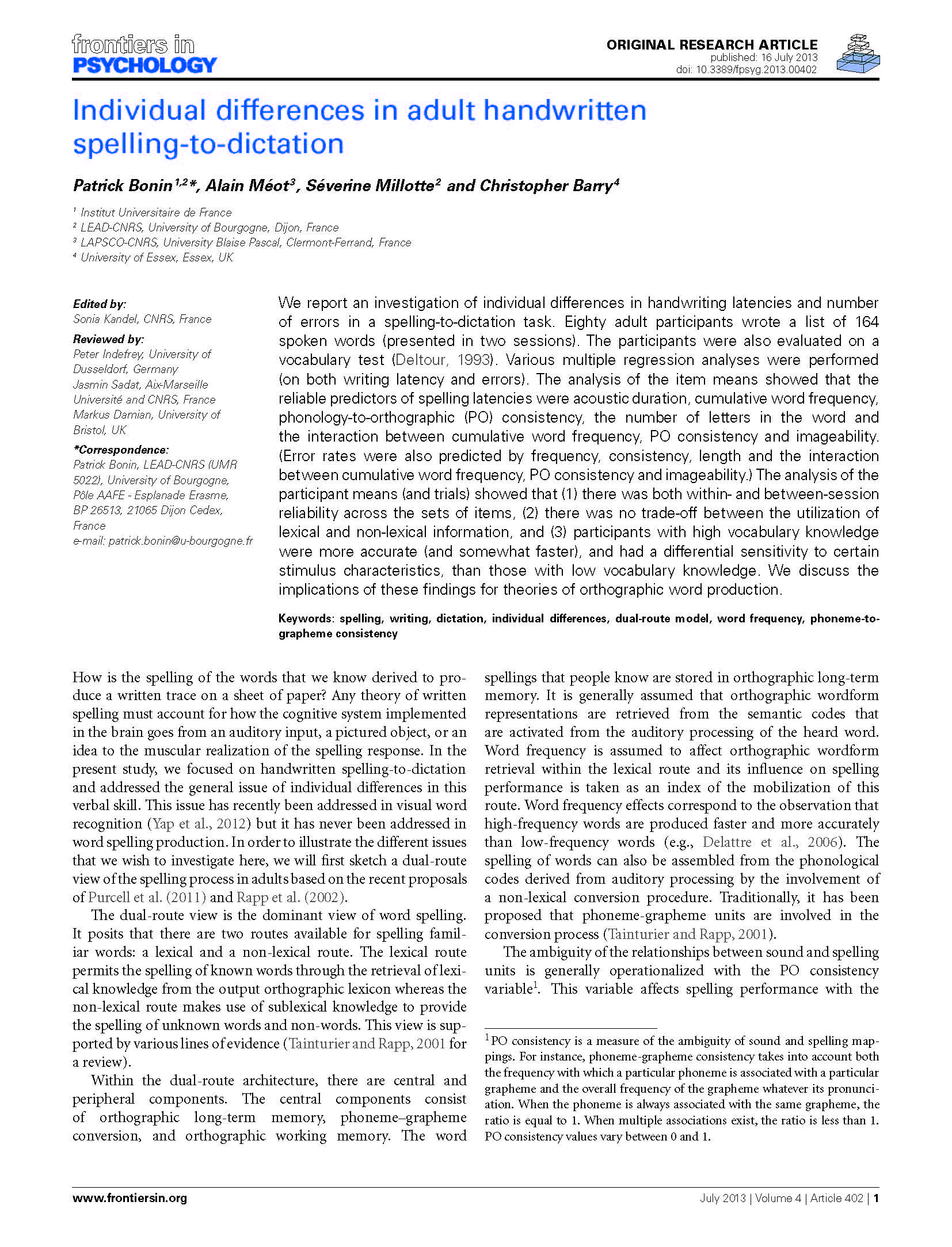We report an investigation of individual differences in handwriting latencies and number of errors in a spelling-to dictation task. Eighty adult participants wrote a list of 164 spoken words (presented in two sessions). The participants were also evaluated on a vocabulary test (Deltour,1993). Various multiple regression analyses were performed( on both writing latency and errors). The analysis of the item means showed that the reliable predictors of spelling latencies were acoustic duration, cumulative word frequency, phonology-to-orthographic (PO) consistency, the number of letters in the word and the interaction between cumulative word frequency, PO consistency and imageability (Error rates were also predicted by frequency, consistency, length and the interaction between cumulative word frequency, PO consistency and imageability.) The analysis of the participant means (and trials) showed that (1) there was both within-and between-session reliability across the sets of items, (2) there was no trade-off between the utilization of lexical and non-lexical information, and (3) participants with high vocabulary knowledge were more accurate (and somewhat faster), and had a differential sensitivity to certain stimulus characteristics, than those with low vocabulary knowledge. We discuss the implications of these findings for theories of orthographic word production.
Individual differences in adult handwritten spelling-to-dictation
